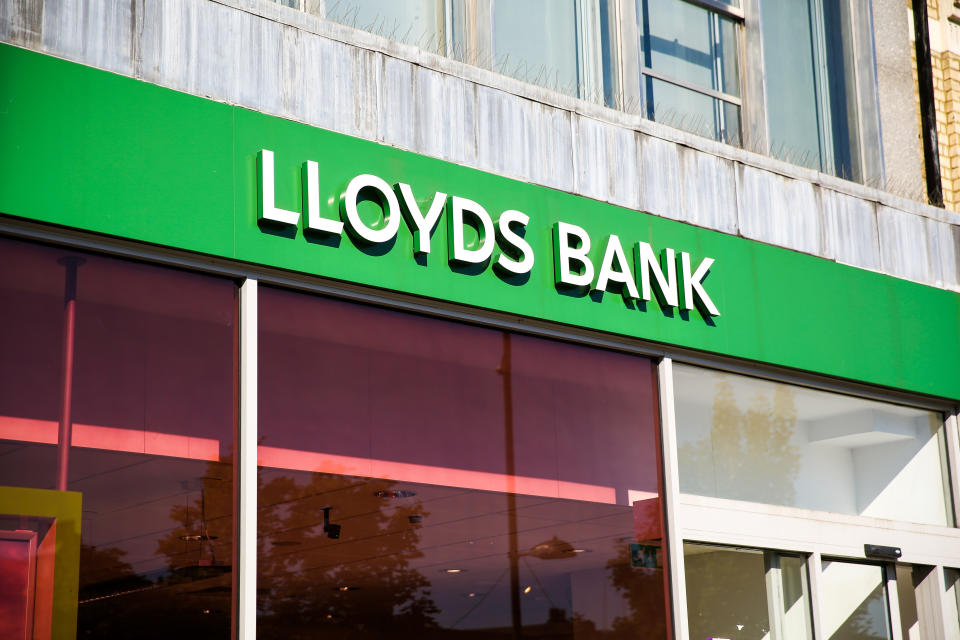Lloyds profit falls 97% as bank takes £1.8bn PPI hit

Lloyds Banking Group’s (LLOY.L) third quarter results were “significantly impacted” by PPI mis-selling claims, its CEO said Thursday, as the group reported worse-than-expected numbers.
Lloyds confirmed on Thursday it set aside £1.8bn in the third quarter of the year to cover a surge in claims for payment protection insurance (PPI) mis-selling. That was at the top end of the £1.6bn and £1.8bn guidance the bank gave in September.
As a result, pre-tax profit fell 97% compared with the third quarter of 2018, dropping to just £50m. Profit was also below the average forecast among analysts of £163m.
Return on tangible equity, a key measure of bank performance, was negative 2.8% for the quarter.
“I am disappointed that our statutory result was significantly impacted by the additional PPI charge in the third quarter, driven by an unprecedented level of PPI information requests received in August,” said Lloyds CEO António Horta-Osório in a statement.
“However, our performance continues to demonstrate the resilience of our customer franchise and business model, the strength of our balance sheet and that our strategy is the right one in this environment.”
Almost all UK banks were forced to set aside far more than expected to cover PPI claims in the third quarter after the August 29 deadline for claims led to a spike in inquiries.
Worryingly for investors, Lloyds also missed forecasts on revenue, which is unaffected by PPI costs. Revenue fell 6% year-on-year to £4.1bn in the third quarter. Analysts had been expecting income of £4.3bn.
Jefferies’ banking analysts Joseph Dickerson and Aqil Taiyeb called the results “respectable (not stellar).”
Shares in the bank fell 2% in early trade in London.
‘Continued economic uncertainty’
William Chalmers, Lloyds’ chief financial officer, blamed the performance on a “challenging external environment.”
“We are seeing, frankly, less investment activity than we might see in a more stable environment,” Chalmers told journalists, blaming political instability in the UK. The bank’s retail business was holding up well, he said.
Income for the first nine months of 2019 was down 3% on this time last year at £13bn. Pre-tax profit in the nine month was £2.9bn, down 40% compared to 2018. Return on tangible equity for the nine months was 6.2 percentage points on last year to 6.8%.
The bank took an impairment charge of £950m in the nine month period due to a slump in used car sales, which hit its car finance business. Impairments also suffered from “a single large corporate charge.” Chalmers wouldn’t comment when asked by journalists if this was Thomas Cook, which went bust in September.
A brighter spot was costs, which declined by 5%.
“In the first nine months of 2019 we have made strong strategic progress and delivered solid financial performance in a challenging external environment,” Horta-Osório said.
“Although continued economic uncertainty could further impact the outlook, we remain well placed to support our customers and to continue to Help Britain Prosper.”
Nicholas Hyett, an equity analyst at Hargreaves Lansdown, said: “Low interest rates and increased competition mean the bank’s making less money on loans than it has done in the past, and writedowns are creeping up as used car prices fall and some of the bank’s commercial customers run into problems.
“If those trends continue it will be increasingly difficult for Lloyds to grind out growth. Worse, if conditions deteriorate significantly, this quarter’s numbers suggest to us that Lloyds could really struggle.
“It increasingly feels like Lloyds’ destiny is out of its hands.”

 Yahoo Finance
Yahoo Finance 